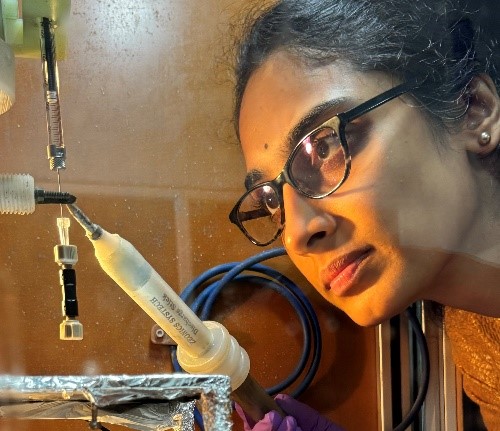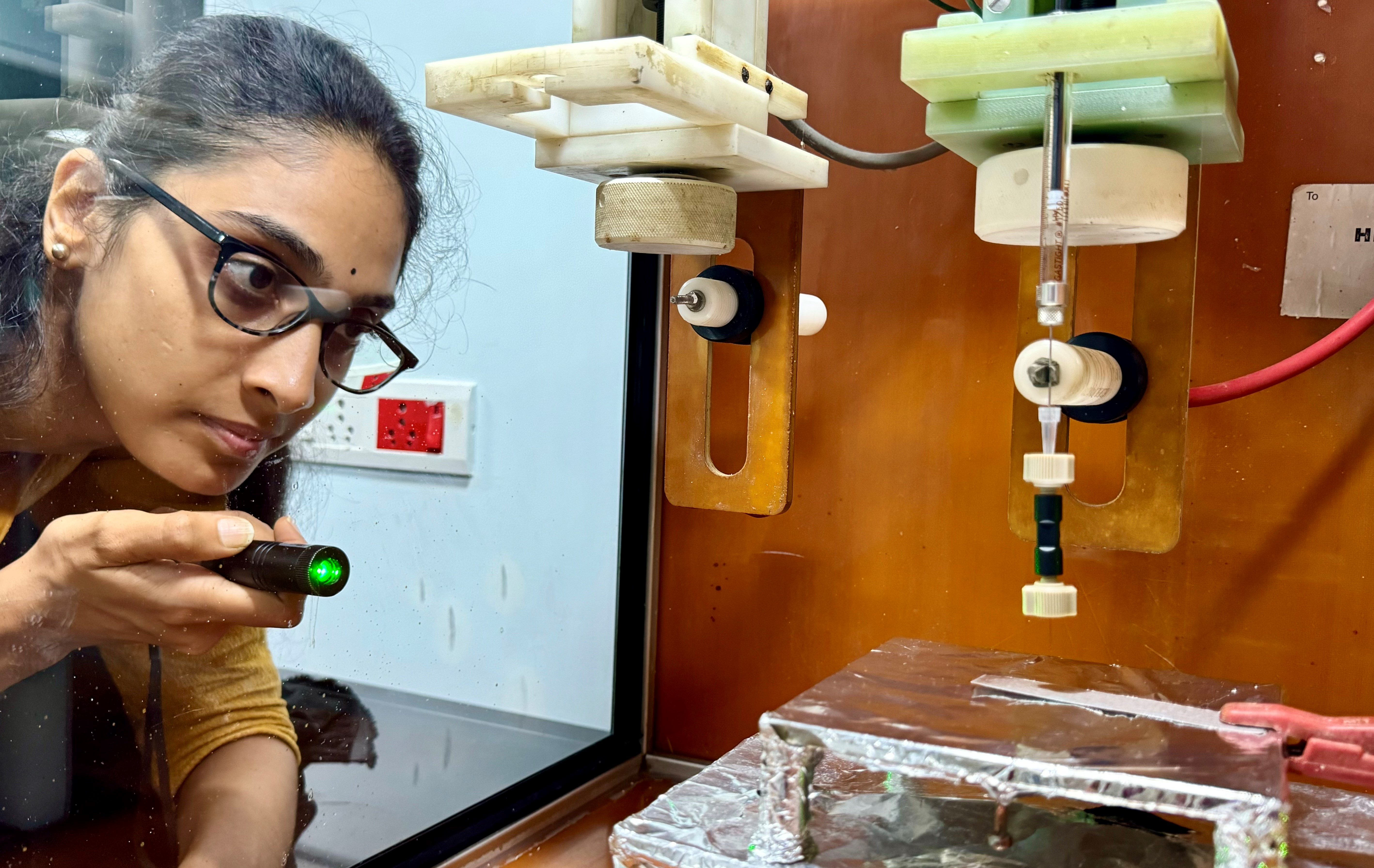Special Service and Features
IIT Madras Researchers show that Natural Minerals are broken by Water Droplets to form Nanoparticles
Posted On:
03 JUN 2024 2:34PM by PIB Chennai
Indian Institute of Technology Madras (IIT Madras) Researchers have shown that common minerals can be broken by water microdroplets to make corresponding nanoparticles. This is the First Research Paper from IIT Madras to be published in the prestigious ‘Science’ journal.
Atmospheric water droplets such as clouds and fog can be charged due to ionic species present in them and by contact electrification. Disintegration of minerals make nascent surfaces and on such surfaces, different types of catalysis may occur, forming new molecules. These processes could be important in the origin of life.
The researchers says that ‘microdroplet showers’ composed of nanoparticles and molecules falling on Earth may be of importance to the chemical and biological evolution of the planet. Science is the peer-reviewed academic journal of American Association for the Advancement of Science, the world’s oldest and largest general science organization. It has been at the centre of important scientific discoveries since its founding in 1880 with seed money from the inventor, Thomas Edison. It is considered to be one of the world’s top academic journals with articles that consistently rank among the most cited in the world.
The research was led by Prof. Thalappil Pradeep, Institute Professor, Chemistry Department, IIT Madras, a Padma Shri awardee, and Ms. B. K. Spoorthi, the First Author of the Research Paper who has just completed her PhD from IIT Madras. The computational work was done by Ms. Koyendrila Debnath under the advice of Prof. Umesh V. Waghmare of Jawaharlal Nehru Centre for Advanced Scientific Research (JNCASR),Bengaluru and President of Indian Academy of Sciences.
The findings were published in the Science Journal issue dated 31st May 2024 (DOI: 10.1126/science.adl3364) Highlighting the significance of this Research, Prof. Thalappil Pradeep, Institute Professor, Chemistry Department, IIT Madras, said, “Microdroplets are known to enhance chemical reactions, and as a result new chemical bonds form. We thought that it may be possible to break chemical bonds as well in microdroplets. That thought led to this discovery.”
Speaking about the next steps in this research, Prof. Thalappil Pradeep added, “The science we reported, if happens in nature, could be a very important way to transform rocks to natural nanoparticles, which are active ingredients of soil. To put it bluntly, we have found a way to make sand to soil. Looking into the future, I might say that with adequate resources, we can help deserts bloom.”
Elaborating on the important applications of this research, Ms. B. K. Spoorthi, the First Author of the Research Paper who has just completed her PhD from IIT Madras, said, “This finding offers a transformative technique for soil formation, dramatically accelerating natural weathering processes from centuries to moments. Beyond its environmental benefits, this method advances nanotechnology and materials science, enabling sustainable and efficient nanoparticle production with broad industrial applications”.
In their experiment, they found that pieces of minerals such as river sand, ruby and alumina, which are very hard minerals, incorporated in tiny charged water droplets break spontaneously to form nanoparticles, in milliseconds.
They collected the formed nanoparticles and characterized them with advanced methods. Computer simulations suggested that the phenomenon may occur by a process called ‘proton- induced slip’, in which atomic layers in the minerals slip between each other, assisted by protons. In tiny water droplets, protons and other reactive species are known to exist.
Speaking about the mechanism, Prof. Umesh V. Waghmare said, “The phenomenon involves complex processes inherent to microdroplets of water, and understanding its mechanism will stimulate many fundamental scientific studies." This rapid process of weathering may be important for soil formation, given the prevalence of charged aerosols in the atmosphere. Soil forms through rock weathering, a process involving multiple factors and it takes 200-400 years to yield one centimetre of it normally, composed of varied particle sizes. Nanoparticles of minerals such as silica are crucial for the growth of crops such as rice and wheat.


*****
PKV/KV
(Release ID: 2022580)
Visitor Counter : 131
Read this release in:
Tamil